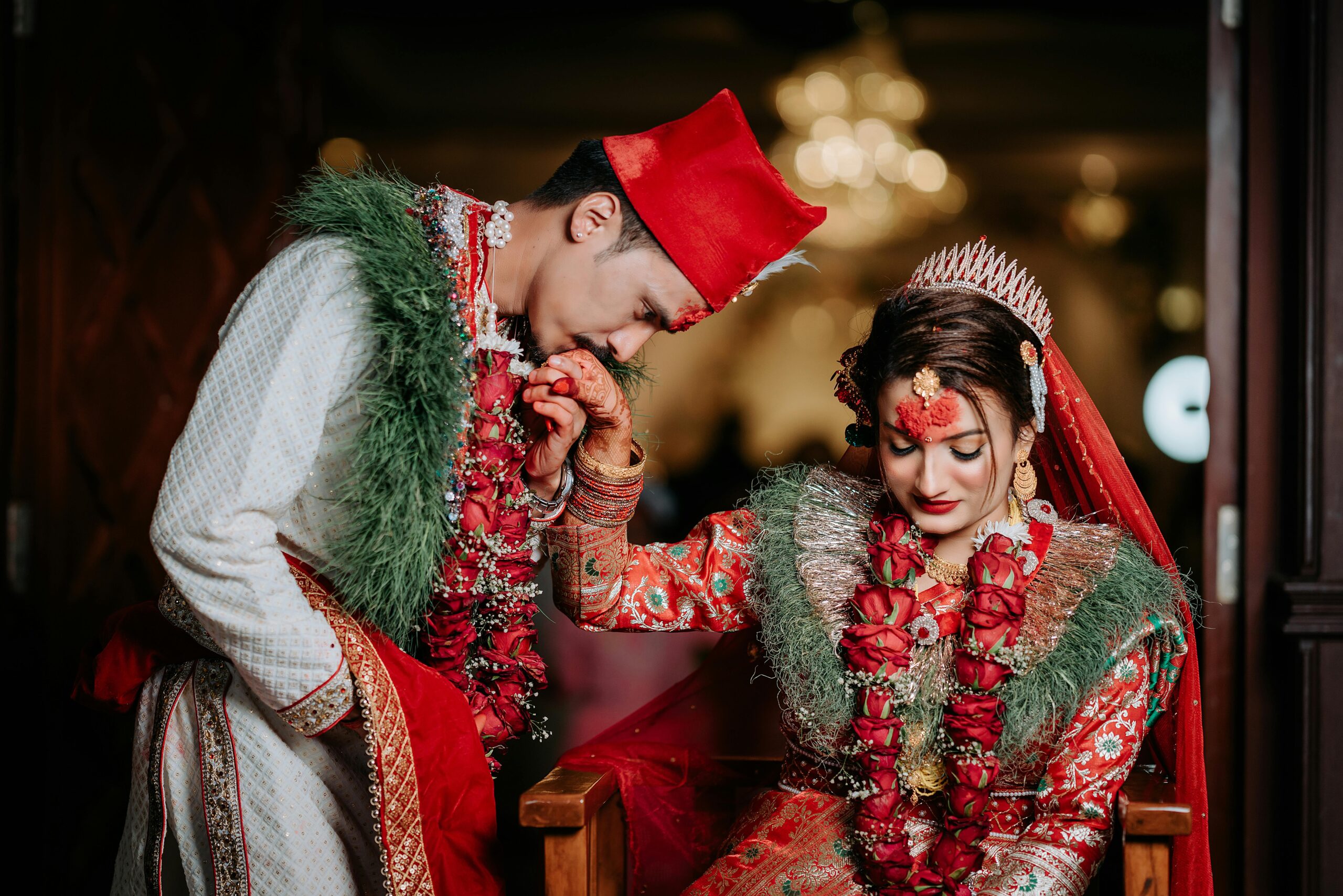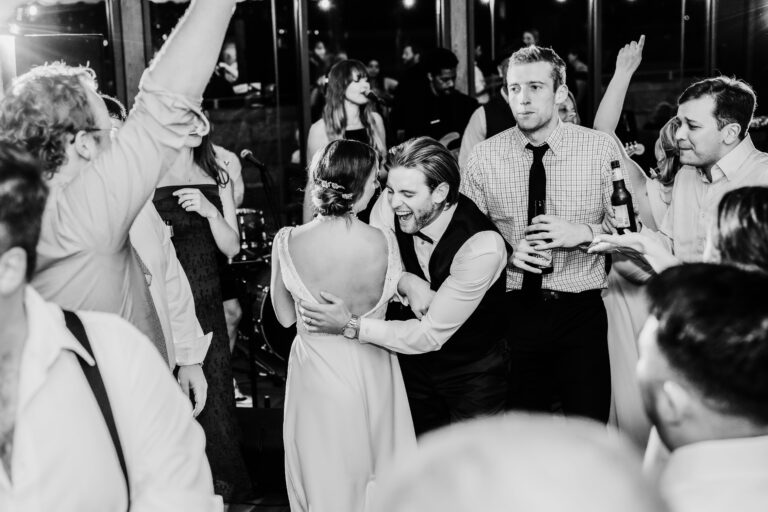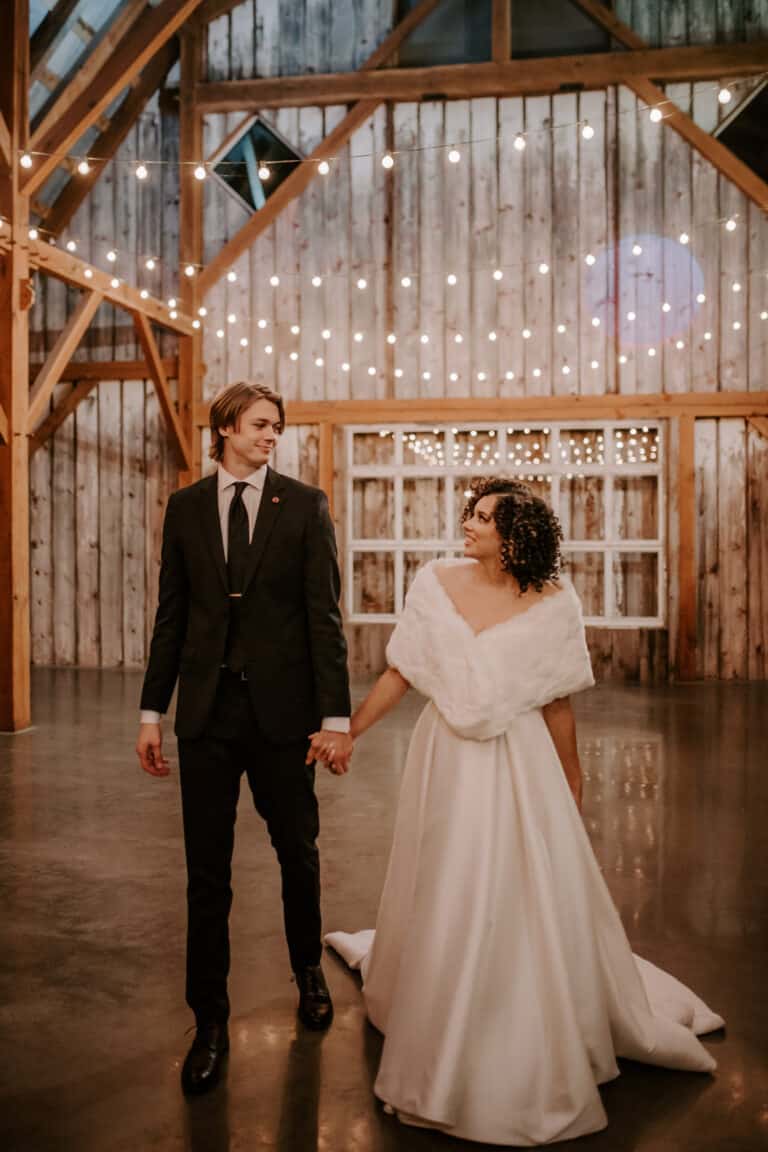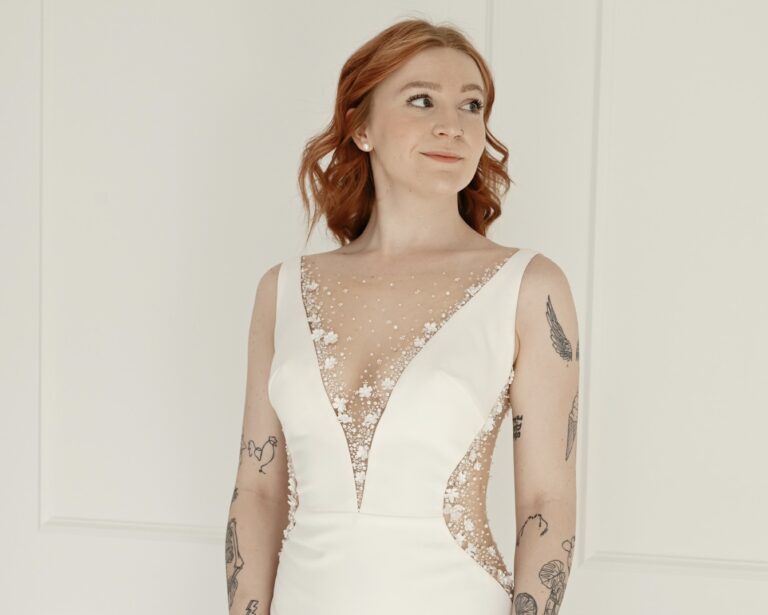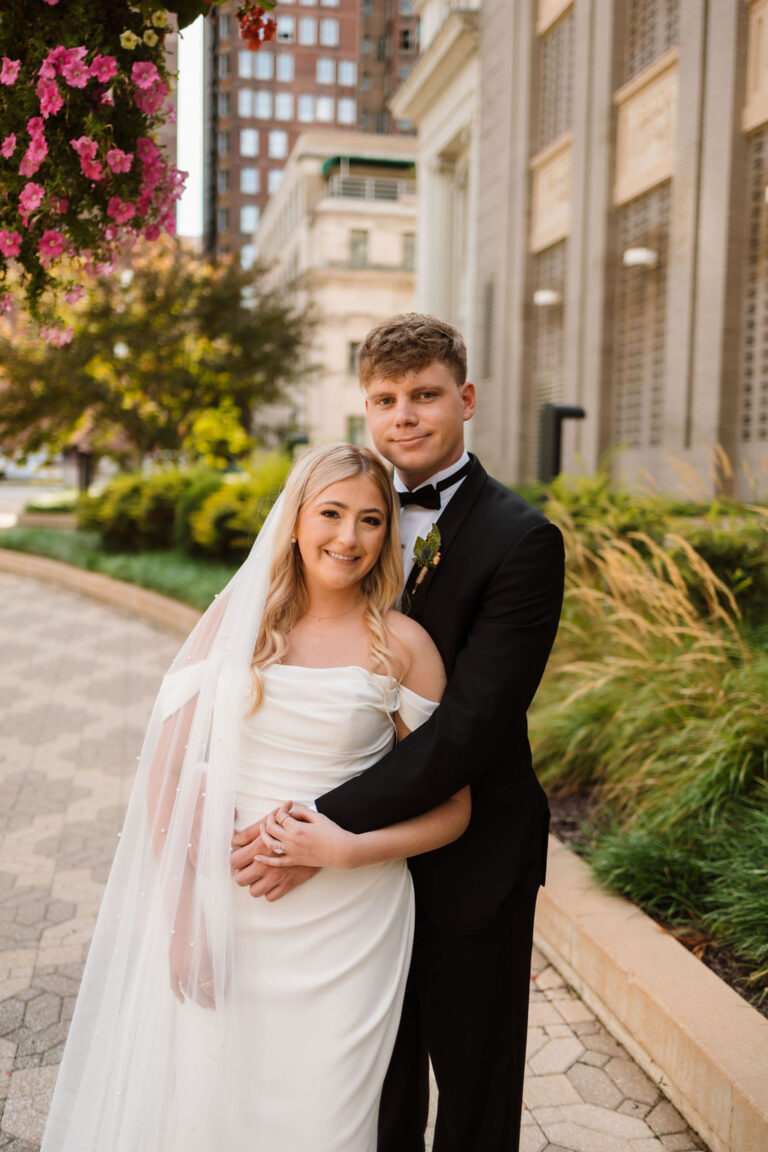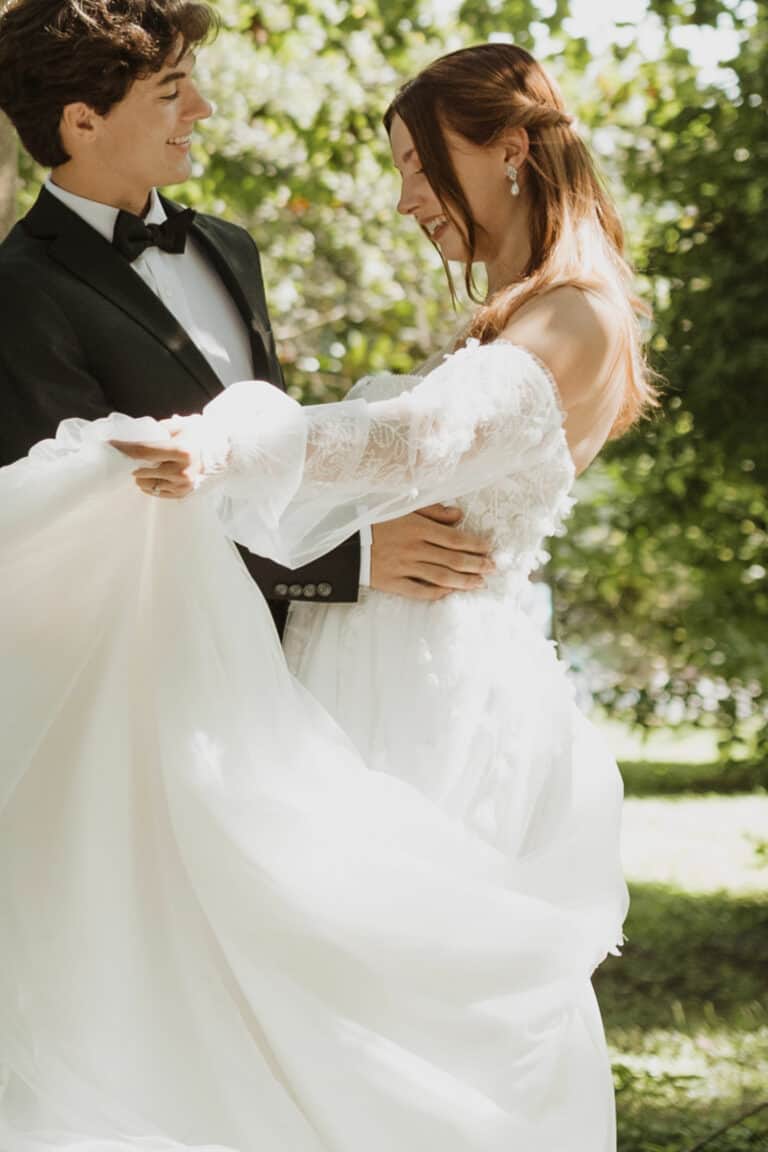Unique Wedding Traditions From Around the World
Every culture has its own cherished wedding customs, bringing unique beauty and meaning to the big day. Whether you’re planning a traditional ceremony or want to infuse your celebration with different cultural wedding traditions, understanding the history behind these customs can add even more significance to your wedding.
At our bridal boutiques in Kansas City, Missouri, St. Louis, Missouri, and now Fort Lauderdale, Florida, we’re inspired by the many traditions that make each wedding unique.
What Cultures Have Unique Wedding Traditions?
Wedding celebrations worldwide reflect the rich diversity of cultural wedding ceremony traditions. Here, we take a closer look at some fascinating customs.
India: Hindu Wedding Traditions
In India, Hindu weddings are colorful, joyful, and steeped in rituals that emphasize the joining of two souls. One of the most recognizable customs is the “Saptapadi” or Seven Steps, where the couple takes seven steps around a holy fire, each step symbolizing a promise they make to each other.
Another popular tradition is the application of intricate henna designs on the bride’s hands and feet, known as “mehndi,” which is believed to bring good luck. These cultural wedding traditions are known for their elegance and deep symbolism, making Indian weddings truly unforgettable.
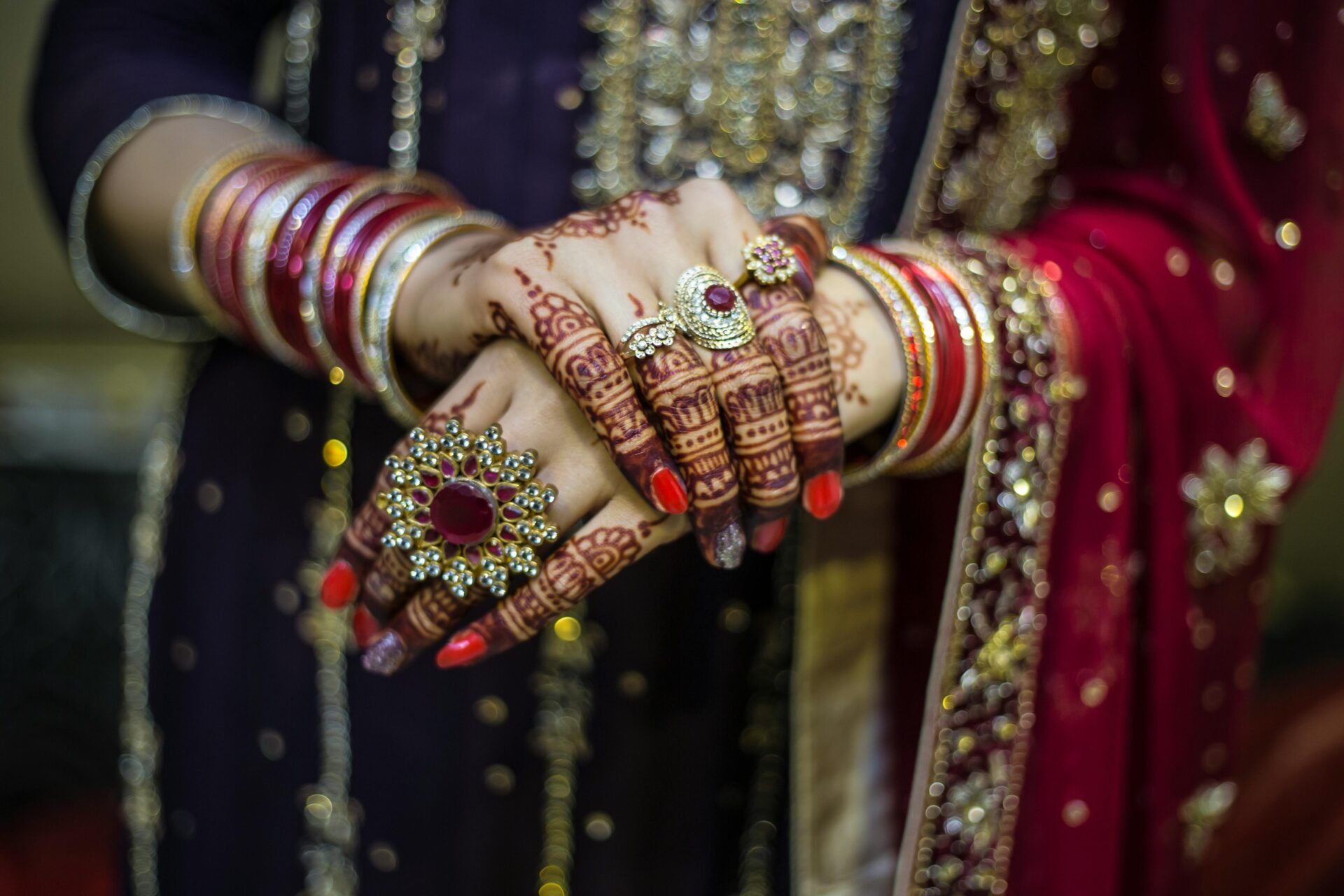
Greece: Greek Orthodox Wedding Traditions
Greek weddings are filled with traditions that celebrate unity, family, and good fortune. One key part of the Greek Orthodox ceremony is the “Stefana,” or the crowning ritual, where the couple wears crowns connected by a ribbon to symbolize their unity.
Another beloved custom is throwing rice at the couple as they exit the church, representing prosperity and fertility. For couples interested in integrating different cultural wedding traditions into their own ceremony, Greek customs offer a blend of religious and joyful practices.
China: Chinese Wedding Customs
Chinese weddings are rich with symbolism and typically begin with a “tea ceremony” where the couple honors their elders by serving tea to family members. Red, symbolizing luck and prosperity, is the primary color used in décor and attire, and the bride often wears a traditional red dress, or “qipao.” Another unique tradition is the “hair combing ceremony,” which signifies the bride’s transition to womanhood. Chinese cultural wedding ceremony traditions are rooted in symbolism and family, making them a beautiful option to include in modern weddings.
Jewish: Jewish Wedding Traditions
Jewish weddings are often filled with meaningful rituals passed down through generations. One of the most recognizable traditions is the “Chuppah,” a canopy under which the couple stands during the ceremony, symbolizing the home they will build together.
Additionally, the groom breaks a glass at the end of the ceremony, a reminder of the destruction of the Jewish Temple and the bittersweet nature of life. Jewish wedding traditions offer unique and beautiful ways to honor both faith and heritage.
Spanish and Latin American Wedding Customs
In Spanish and Latin American cultures, wedding traditions are vibrant and full of passion. One of the most notable customs is the groom giving the bride “arras” (13 gold coins), symbolizing his commitment to providing for the family.
Another unique Latin American tradition is “las arras matrimoniales,” where the bride and groom exchange coins as a promise of prosperity. For couples looking to incorporate cultural wedding ceremony traditions, these customs bring a heartfelt exchange that goes beyond words.
Japan: Japanese Wedding Traditions
Japanese weddings combine traditional Shinto practices with modern elements. A classic Shinto wedding ceremony includes the “San-San-Kudo” ritual, where the bride and groom each take three sips from three cups of sake, symbolizing the union of two families.
Japanese weddings also feature beautiful attire, with the bride often wearing a white kimono to signify purity. This ceremony is a beautiful way for couples to embrace cultural wedding traditions that are both serene and spiritually meaningful.
More Unique Cultural Wedding Ceremony Traditions
- Scotland: The Scottish “handfasting” ceremony, where the couple’s hands are bound together with ribbon, symbolizes their union and commitment.
- Morocco: Moroccan weddings are typically week-long celebrations, and the bride often undergoes a “milk bath” ritual before the wedding to purify and prepare her for her new role.
- Philippines: In the Philippines, couples release doves to symbolize peace and harmony as they start their new life together.
- Nigeria: Nigerian weddings are full of color and energy, with traditional “Aso-Ebi” attire, where guests wear matching outfits to show support for the couple.
- South Africa: South African weddings are a lively blend of traditions from different tribes and communities. A unique custom is the “jumping of the broom,” which has roots in several African cultures. The couple literally jumps over a broom together, symbolizing the start of a new home and life.
- Italy: Italian weddings are known for their joyous spirit and family-centered celebrations. One tradition is the “La Tarantella” dance, where guests hold hands in a circle and dance energetically. Another is the “confetti” toss, where sugar-coated almonds are thrown to symbolize a bittersweet future.
- Russia: Russian weddings typically begin with the “Korovai,” a decorated bread baked by friends and family, symbolizing prosperity and unity. There’s also the “stealing of the bride,” where friends humorously “kidnap” the bride, and the groom must perform certain tasks or pay a “ransom” to get her back, adding a fun element to the day.
- Korea: Traditional Korean weddings feature the “Paebaek” ceremony, where the couple offers wine to their parents and receives blessings. A unique part of this ceremony includes the couple attempting to catch chestnuts and dates tossed by their parents, symbolizing the number of children they will have.
- Ethiopia: Ethiopian Orthodox weddings are regal and heavily influenced by ancient traditions. The ceremony often includes ornate crowns for the bride and groom. Guests join in singing, dancing, and sharing a traditional honey wine, “tej,” making for a vibrant and communal celebration.
Why Embracing Cultural Wedding Traditions Makes Your Day Even More Special
Incorporating cultural wedding traditions into your ceremony adds depth and uniqueness to your celebration, honoring your heritage and creating a memorable experience for you and your guests. These traditions serve as a link to family history, keeping meaningful rituals alive and passing them on to future generations. Whether through specific ceremonies, attire, music, or symbolic gestures, embracing these customs can create a sense of belonging, adding a personal touch that resonates with guests and enriches the significance of your commitment.
Furthermore, cultural traditions bring a unique flair that can set your wedding apart, blending the past with the present in a way that feels authentic to your identity. From breaking a glass in a Jewish ceremony to performing a traditional tea ceremony in Chinese weddings, these practices reflect respect for heritage and invite guests to participate in something meaningful and heartfelt.
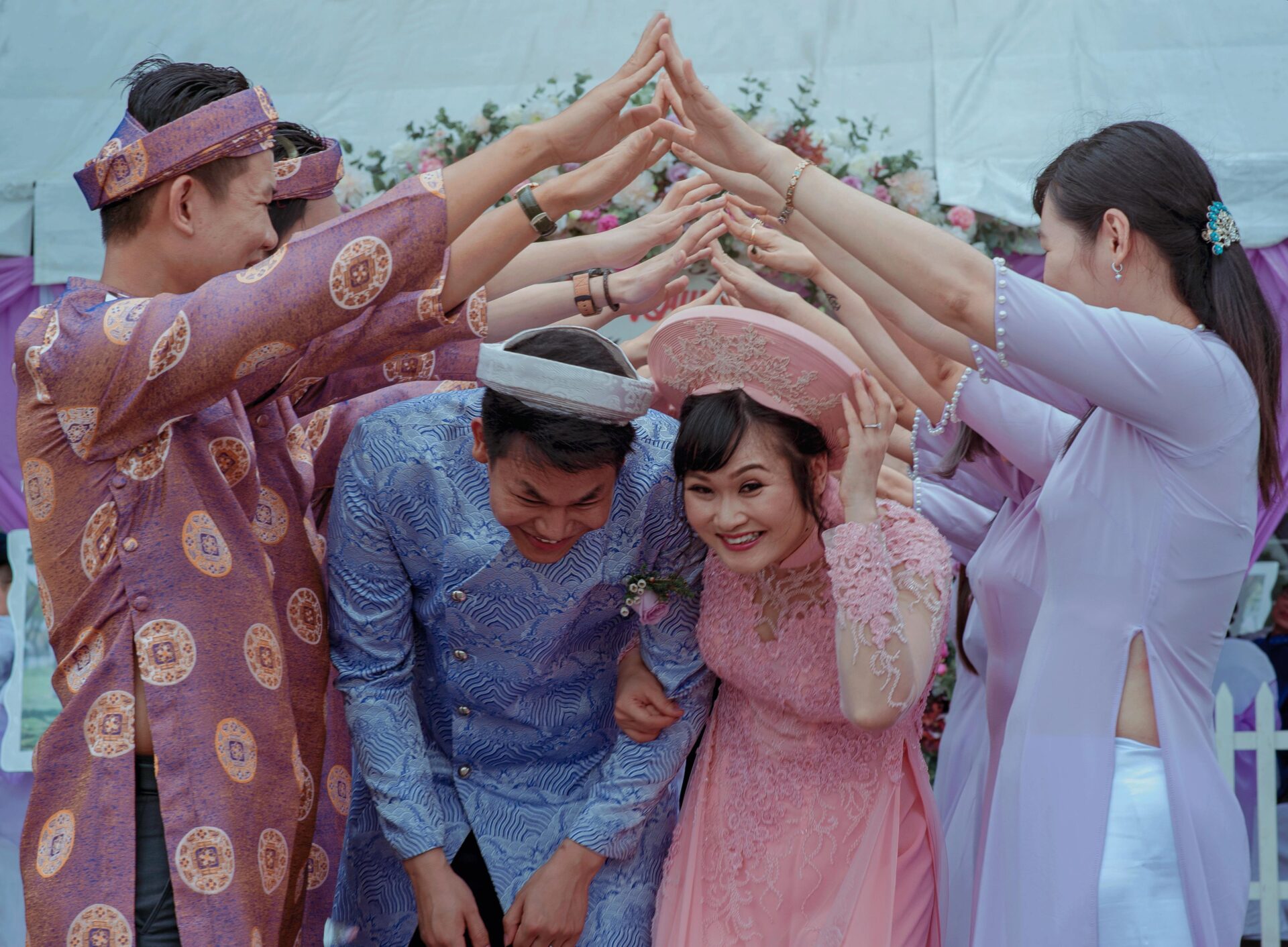
How to Incorporate Cultural Traditions into a Modern Wedding
For couples who want to blend traditional customs with modern elements, there are plenty of creative ways to honor heritage without having a fully traditional ceremony. Here are some ideas:
- Include a Traditional Ceremony Within Your Modern Wedding: For example, many couples choose to add a tea ceremony, Jewish chuppah, or Mexican lasso ritual as a meaningful segment within a contemporary ceremony.
- Incorporate Traditional Attire: Wear traditional attire for part of the day, such as during the ceremony, and then switch to modern attire for the reception. Brides can choose to wear a red “qipao” at a Chinese wedding or a sari at an Indian wedding before changing into a white dress.
- Design Fusion Décor and Food: Honor your cultural heritage through details like floral arrangements, table settings, and cuisine. For instance, incorporating Greek olive branches, Italian confetti, or Japanese cherry blossoms as part of the décor can be a subtle and meaningful nod to you or your spouse’s heritage. Likewise, serving traditional foods or desserts can provide a personal touch.
Blending these unique elements from cultural wedding ceremony traditions with contemporary styles can create a memorable and personalized celebration.
Symbolism in Wedding Traditions
Understanding the symbolism behind cultural wedding traditions adds depth and appreciation to these beautiful customs. Here’s a look at a few symbolic elements commonly found in wedding rituals:
- Colors: In Chinese weddings, red represents happiness and prosperity, while white is commonly associated with Western weddings to symbolize purity. Indian weddings often use vibrant colors like red and gold for luck and joy, while green may symbolize fertility in Irish weddings.
- Ritual Objects: Items like the Greek “Stefana” crowns represent unity, while the Jewish “Ketubah” (marriage contract) signifies the promises and responsibilities of marriage.
- Traditional Foods and Drinks: Certain foods also carry symbolic meaning. Ethiopian honey wine, “tej,” is served to symbolize sweetness in marriage, while Italian almond confetti is meant to balance the bittersweetness of life. Many Middle Eastern cultures serve dates for good fortune and fertility.
For couples who want to personalize their ceremony, these symbolic elements can be incorporated in subtle ways to add a deeper meaning.
Popular Trends in Multicultural Weddings
With modern weddings often celebrating the blending of multiple backgrounds, many couples embrace trends that honor family traditions and their unique love stories. Here are a few ideas that may inspire you:
- Bilingual Ceremonies: For couples from different linguistic backgrounds, incorporating vows or readings in both languages adds inclusivity and personal significance.
- Fusion Attire and Décor: Brides and grooms are increasingly mixing cultural attire—think a Western wedding dress with a colorful Indian dupatta or incorporating Japanese floral designs into bouquets. Multicultural décor, like bilingual signage or table settings that honor both cultures, is also becoming more popular.
- Blended Customs: Some couples choose to combine traditions, such as a Catholic ceremony followed by a Chinese tea ritual or incorporating both a Nigerian Yoruba “engagement” ceremony and a Western-style wedding. These blends allow couples to honor both families while creating something uniquely theirs.
Embracing these multicultural trends allows couples to celebrate their unique backgrounds and create a wedding day filled with meaningful, personalized moments.
How Our Savvy Bridal Boutique Supports Cultural Traditions
At Savvy, we’re dedicated to helping brides honor their heritage through personalized wedding attire. Our experienced team can assist you in finding or customizing gowns that reflect cultural elements, whether you’re incorporating bold colors, traditional patterns, or unique silhouettes.
In addition, we offer:
- Custom Veils and Accessories: Many cultures have unique veils, jewelry, or headpieces that hold symbolic significance. Our boutique offers veils inspired by mantillas, ornate crowns for Orthodox weddings, and other culturally inspired accessories to complete your look.
- Guidance on Traditional Attire: If you want to include traditional clothing, we can provide advice on seamlessly blending these elements into your overall aesthetic. Whether it’s pairing a contemporary dress with a traditional wrap or adding lace details inspired by cultural motifs, we’re here to make your vision come to life.
No matter what traditions or heritage you want to celebrate, our Kansas City, St. Louis, and Fort Lauderdale boutiques are here to help you create a look that’s both meaningful and beautiful.
By exploring various cultural wedding ceremony traditions, you can create a day that’s uniquely yours, enriched by customs that have connected couples across generations. Let Savvy Bridal help you find the perfect gown to complete your dream wedding.

